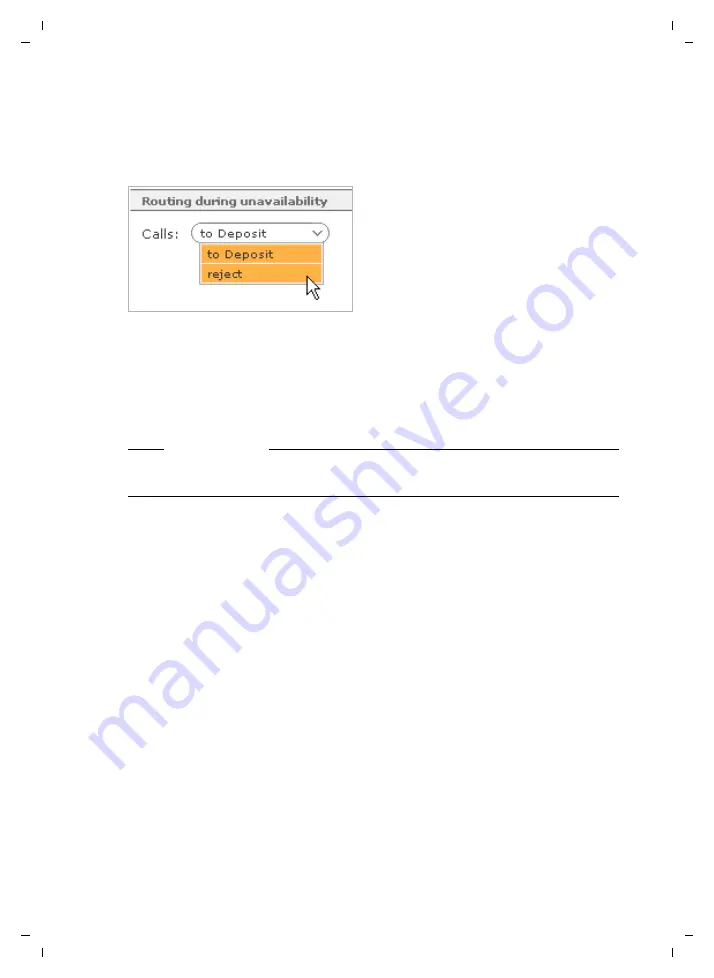
55
Routing
Gigaset T300 PRO / Gigaset T500 PRO / EN Master / A31008-M2212-R102-1y-7619 / admin_administration.fm / 02.12.2010
V
e
rsion 2, 06.0
8
.2010
Routing during unavailability
It must be defined how the PABX processes calls where the user receives a call but does
not have an active phone (i.e., he is not logged in to a device) and has not set up redirec-
tion.
Cost optimized routing
¤
Click on
S
or
New Rule
to create a COR rule.
¤
Then enter the
Phone Number
, to which the rule should apply. This means that every
routing rule created has a unique number range. For outgoing calls, the COR rule
applied is the one whose number range best corresponds to the number dialled.
Example:
Two COR rules have been defined - the first for the number range 0123, the sec-
ond for the range 01234. The number 0123456 has just been dialled for an outgoing call.
This activates the second COR rule (number range 01234) as 01234 has a longer matching
sequence of digits with 0123456 than the 0123 of the first COR rule.
Each COR rule applies within a specific timeframe. You can specify the weekdays (via
checkboxes) and the time for this.
In
Specify Line Sequence
, one or more lines are assigned to the timeframe using
p
.
The sequence of lines determines their priority. This means that the top line is tried first
to establish a connection, then the next one etc. until all assigned lines have been tried.
If this fails for all specified lines, the next available line in the system is used to ensure the
connection is established.
A
Pre-Preselection
(call-by-call) can be specified for each line. These then prefix the
actual phone number when a connection is being established.
to Deposit
The caller is forwarded to the deposit, the number for which is entered dur-
ing line configuration. If a deposit is not specified, the call is rejected.
reject
This is indicated to the caller by a special unavailability tone. The call is not
redirected!
Please note
If a call is established using a line prefix with ** *, the routing rules for the call are over-
ridden.






























